Published Mar 20, 2019
What Does it Take to be 'Number One?'
Hint: Grit, discretion, and a cool head on your shoulders are a great place to start.

StarTrek.com
"Number One." This simple nickname used by many captains when referring to their first officers, is deceptively descriptive. The second-in-command ranks "number one" for multiple points of contact, ranging from being the first person subordinate contacts if they have an issue with a superior, to being their captain's closest confidant when guidance is needed during a difficult mission.
The first officer carries out their captain's orders, suggests alternative strategies, deploys personnel effectively, spearheads away teams, and even handles crew evaluations and transfers. Captains may set the destination, but first officers ensure safe arrivals. Being able to handle that type of pressure takes a special person with a few essential qualities that every first officer needs.
1. Protect Your Captain
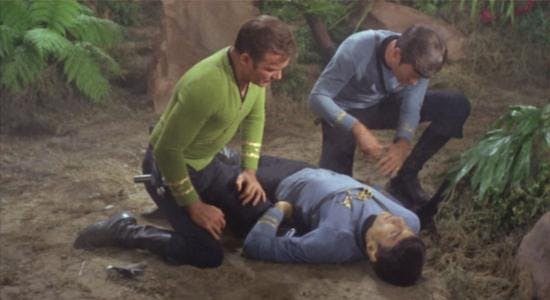
StarTrek.com
Whether dangers manifest themselves as physical threats or emotional strains, a first officer's duty is to know how to prevent those hazards from harming their senior officer. As their landing party surveyed Gamma Trianguli VI in "The Apple," Spock noticed that a deadly plant with the ability to launch poisonous thorns targeted Captain Kirk. Spock maneuvered swiftly, pushing Kirk to safety just in time for the fatal projectiles to strike the Vulcan instead. Fortunately, Dr. McCoy's medical treatment revived Spock, who had been prepared to die to shield his captain from harm.
2. Place Your Loyalty to the Crew Over Your Own Well-Being
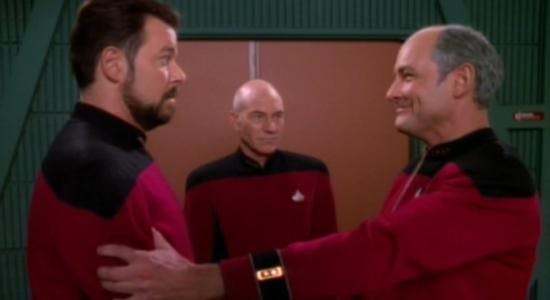
StarTrek.com
Circumstances in which a Number One's duty clashes with their reputation may arise, prompting them to decide whether or not they should compromise their morals to protect themselves. Forced to choose between obeying Admiral Pressman and saving the U.S.S. Enterprise-D's crew from Romulan imprisonment in Star Trek: The Next Generation's "The Pegasus," Commander Riker willingly divulged the illegal cloaking technology he and Pressman recovered, preferring to risk a court martial rather than jeopardize his colleagues. In the revelation's aftermath, Captain Picard supplied this sage advice to Riker: "You chose to tell the truth and face the consequences... I will still be proud to have you as my first officer."
3. Don't Criticize the Captain in Public
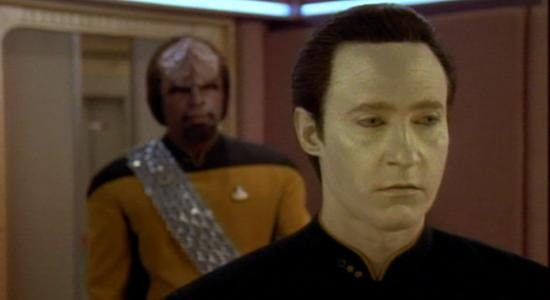
StarTrek.com
An executive officer must show respect for the command structure, and support their captain in front of the crew. This fosters trust among the lower ranks and reinforces the notion that the commanding officer reserves the right to a final say in any situation. Michael Burnham erred when she openly challenged Captain Georgiou's judgment to avoid conflict with the Klingons in Star Trek: Discovery's "The Vulcan Hello." When Picard and Riker were otherwise occupied in "Gambit, Part II," Data and Worf acted as their temporary replacements. Worf breached etiquette by questioning Data's decisions on the bridge, leading Data to privately brief Worf about a true Number One's adherence to protocol.
4. Tell the Captain Exactly What Is on Your Mind
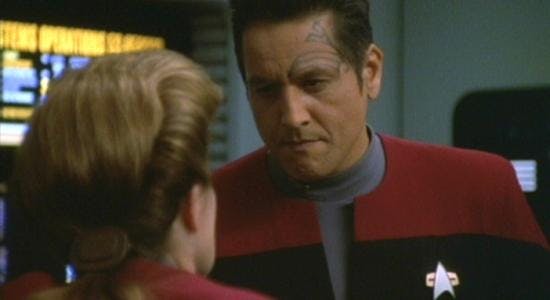
StarTrek.com
While captains do not wish to be contradicted before crew members, they do want their Number One to confide in them and offer strong opinions in a private setting. Commander Chakotay held significant reservations about Captain Janeway's proposition to ally with the Borg Collective in order to repel Species 8472 in Star Trek: Voyager's "Scorpion, Part I." Chakotay relayed his concerns in a one-on-one discussion with Janeway while reinforcing his intention to follow her directives despite his disagreement. The first officer purposely refrained from voicing his dissent in front of the bridge crew, demonstrating his regard for her rank.
5. Have Trust in Your Capabilities and in Your Subordinates
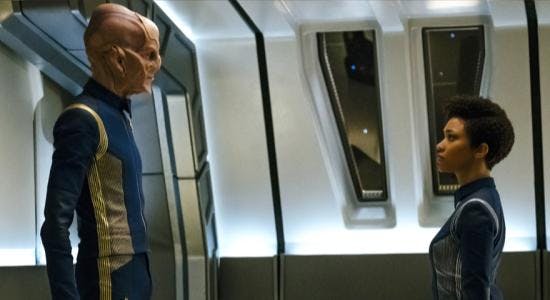
StarTrek.com
Responsibilities abound in a first officer's daily routine, and a Number One needs to have confidence in themselves and in those that report to them. Number Ones oversee department heads who are specialists in their fields, requiring them to temper their own approach to problems with the expertise provided by their subordinates. Commander Saru doubted himself when the Klingons captured Captain Lorca in "Choose Your Pain," allowing his emotions to run wild and hamper him from heeding crucial opinions about the tardigrade from Burnham, Paul Stamets, and Dr. Culber. Stamets gambled with his life to safeguard Ripper, provoking Saru to rethink his choices upon Lorca's return. Realizing his errors, Saru opened up to Burnham, permitted her to release the tardigrade, began believing in himself to a greater extent, and acquired valuable command experience in the process.
6. Always Be Ready to Take the Center Seat
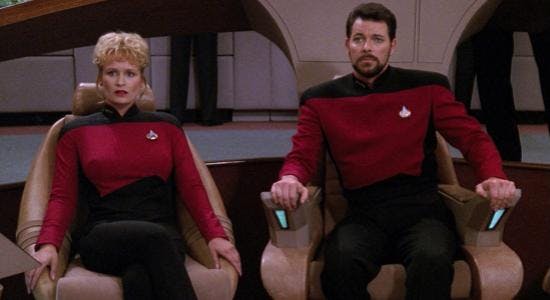
StarTrek.com
From shore leave to a sudden death, various events can cause a first officer to sit in the big chair. Usually brief, these situations inevitably place the burden of command firmly on a Number One's shoulders. The most extreme example occurred during the Borg incursion depicted in the TNG two-parter "The Best of Both Worlds." With Picard assimilated by the Collective, Riker took charge over in unenviable conditions which entailed defeating the Borg, and facing off against the tactical knowledge the Borg absorbed from his mentor. After receiving advice from Guinan, Riker employed an unorthodox scheme that harnessed Picard's awareness of their previous plan to fool the Borg and successfully retrieve the captain. Riker magnificently adapted to the evolving hostilities and proved more than worthy to continue as the Enterprise-D's executive officer.
Jay Stobie is a freelance science fiction writer who contributes articles to the official Star Trek website and Star Trek Magazine. He can be found on Twitter at @CaptStobie and Instagram @JayStobie.

